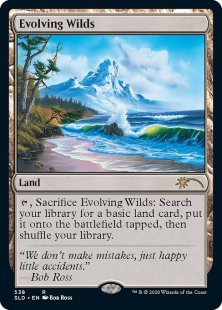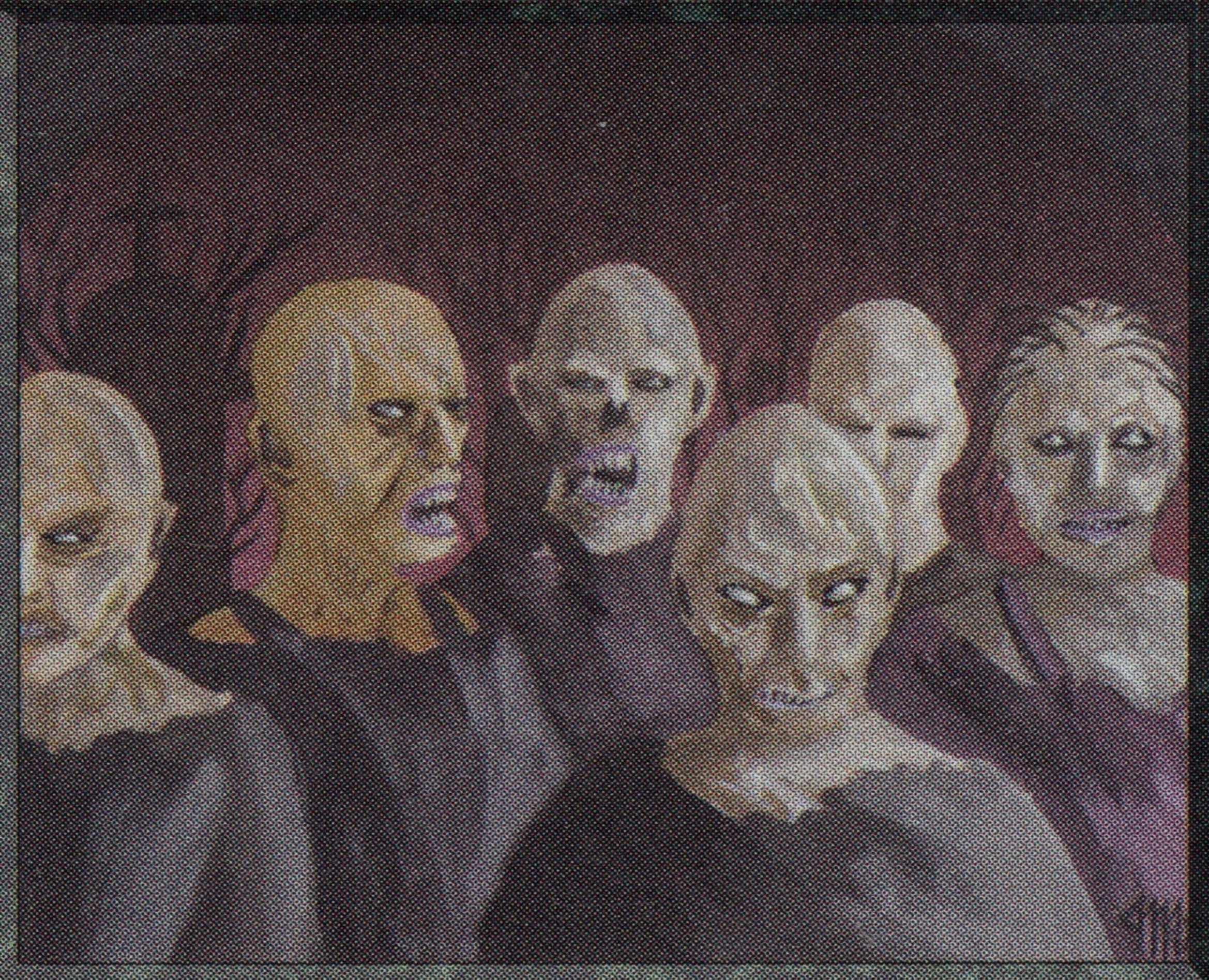Are you a Quiet Speculation member?
If not, now is a perfect time to join up! Our powerful tools, breaking-news analysis, and exclusive Discord channel will make sure you stay up to date and ahead of the curve.
They groaned, they stirred, they all uprose
Nor spake nor moved their eyes;
It had been strange, even in a dream,
To have seen those dead men rise.
Samuel Taylor Coleridge
You might already be familiar with this excerpt, from The Rime of the Ancient Mariner, the longest and most famous work by the English poet Samuel Taylor Coleridge. Among Magic players, however, it is mostly famous as the flavor text of Scathe Zombies, a card that was printed in every single core set, from Limited Edition Alpha through Tenth Edition.
The Sense of Flavor Text
What I like about this choice is that it’s completely gratuitous. I mean, Scathe Zombies is a vanilla creature, a costly black Grizzly Bears, and certainly not a powerful spell making “dead men rise” (think of Reanimate, Animate Dead and the like). And still, someone up there decided to associate this humble Zombie with such a huge, evocative piece of poetry. If you think about it, though, that’s precisely how flavor text works. It is the cards with no (or nearly no) rule text the ones more likely to receive a flavor text, simply because they offer more room within their text box. In the end, flavor text is not at all about in-game power level, but rather about depth, story, and lore. And that’s why we love it, or at least why I have always loved it.
In The Beginning...
I was nine when I started playing Magic. The Onslaught block had just come out, but some of my friends were lucky enough to have older brothers letting them bring older cards to school. I vividly remember the first time I saw a copy of Scathe Zombies from Alpha. I was amazed, both by its old-school look and by its flavor text. It is quite possible that I didn’t know what flavor text was at that time, but I still remember it striking hard. I had never heard of Coleridge, and I’m not even sure I totally understood he was a real author. Those few lines of text certainly had a huge impact on my young mind, as did that excruciatingly beautiful mono-black deck.
Some haunting flavor texts from my first deck, Scourge's Max Attax
Quite a few years have since passed. After studying Literature for half my life, I now know a bit more about that matter. Recently, I got interested in checking out how many cards make use of real-world quotations. I was under the impression that less and less of them were being printed. It turned out that it was not just an impression. Apparently, they are now a thing of the past. The last time a card with real-world flavor quotations was printed was in 2013. This was Zephyr Charge from the Magic 2014 Core Set.
Farewell to Quotations
What in the world had happened? Well, it looks like R&D decided to give more space to worlds, stories, and characters that were created entirely for the game of Magic: The Gathering and just stopped making them. I also discovered that long before 2013, real-world quotations were confined to core sets. The last expansion set with one of these cards was The Dark, dating back to 1994. This is too bad, for fans of literature like me! It was personally quite a shock. Before delving further, let’s focus briefly on what flavor text is and how it is created.
Adding Spice to the Cards
As I said earlier, flavor text is all about spicing up the cards by adding depth, story, and lore to them. So how is flavor text created? For every set, be it a core set or an expansion, there is a single person in charge of all the names and flavor texts. To be more precise, that single person acts as the “creative lead". There is also a whole creative-writing team, mostly composed of freelance writers. Each of them submits several proposals concerning the names of the cards and their possible flavor texts, but in the end, it is up to the creative lead to decide what choices will see print. This has always been the way things worked, with the only change being that at first, the creative lead was the same person for all the sets, while later they started giving the role to different people from set to set.

Are Real-world References Edutainment?
As Mark Rosewater himself explained, Magic R&D decided to limit the use of real-world quotations more and more, until eventually suspending it for good. It looks like they were afraid Magic players would have felt like they were in school, whereas Magic should only be linked to fun, and not confused with edutainment. As a consequence, there were no more such cards after the aforementioned Zephyr Charge. That is if we exclude the Evolving Wilds from Secret Lair, illustrated by Bob Ross and featuring a famous quotation by the artist.
In "Perfection Through Etherium", from the series Savor the Flavor, back in 2008, authors Matt Cavotta and Doug Beyer stated that "it's just too jarring to the sense of place to hear some European dead guy spinning prose while you're looking at the art of some Jund viashino". After a few surveys, Wizards found out that most players preferred Magic-based texts rather than real-world quotations. This means we may very well never see one of those sweet old poems on a Magic card ever again. What we can do, though, is have some fun analyzing the texts that were used in the past, when this was still a thing, and that’s precisely what we are going to do.
The Most Represented Literary Authors
Now, back to Scathe Zombies. As we said, it represents a perfect example of a real-world quotation, and incidentally, Coleridge is also one of the most quoted authors in Magic. He would deserve the third position in a hypothetical contest since there are no less than six distinctly named cards quoting him. Wait, is six cards enough for the podium? It appears so, but if you think that’s weird you should consider the fact that the number of cards showcasing real-world quotations is no more than two hundred. Not that impressive. But after all, let’s not forget that (except for the first year of life of this game) such cards only ever saw print in core sets.
Some of the most renowned cards with real-world quotations
Top of the Literary Standings
And what about the rest of the podium? On the second place, we have another poet, this time one that anybody would recognize: William Shakespeare. The Bard from Stratford-upon-Avon is quoted in 24 distinct cards, his selected works ranging from tragedies and comedies to sonnets. As for the first place, who on Earth could do better than Shakespeare? The answer might surprise you a little since it is not even an English-language author. His name is Luo Guanzhong, and he is a Chinese writer from the 14th century.
His most renowned work is the Romance of the Three Kingdoms – does it ring a bell? As you might have guessed, his victory (granted by no less than 40 cards) should mostly be traced back to the existence of a very special set: Portal Three Kingdoms. This edition, from 1999, was specifically designed for the Asian market and was not even sold in North America, making English cards from that set some of the rarest in the game.
The Literary Top 8
Luo Guanzhong, William Shakespeare, and Samuel Taylor Coleridge are at the top of the standings, but what about the rest of the Top 8? In descending order we have:
- 4. Edgar Allan Poe (5 cards)
- 5. Lao Tzu (5 cards)
- 6. Alfred Tennyson (4 cards)
After sixth-place, things get complicated. We have a tie involving no less than eight different authors, each with three cards: Lewis Carrol, Homer, John Milton, John Dryden, Confucius, Sun Tzu, Seneca, and Ralph Waldo Emerson. It's up to you to decide tiebreakers on that esteemed list.
Special Mentions
A couple of special cases worth noting separately are The Bible and The Arabian Nights. They would both get into the Top 8, except that they are not technically "authors". Anyway, various quotations from The Arabian Nights show up on six cards – curiously, only four of them come from the edition Arabian Nights. As for The Bible, it is present on four or five cards, depending on the Christian tradition, as minutely explained by John Dale Beety.
Novel Shades of Meaning
What I like the most about real-world quotations is the huge variety of authors this system displays, with no need to even invent quotes. The first three authors alone take up 70 cards, sure, but there is still plenty of room for many other poets, novelists, and thinkers, as I will try to show you in the next articles. Another thing I love about it is the way famous lines, speeches, and poems often gain a brand-new meaning, proving in the plainest way that what gives sense to words is above all the context in which they are expressed.





